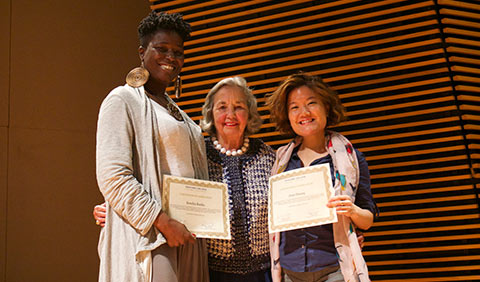Cowin Financial Literacy Program

Program Description:
Teachers College, Columbia University is offering an online version of its Cowin Financial Literacy Institute. Based on an asynchronous online learning experience, the non-credit course will provide classroom teachers, pre-service teachers and other educators with classroom-ready instructional resources, strategies, and support to teach financial concepts (savings, investing, budgeting, financial planning, credit, risk, consumption, and diversification) to high school students.
A total of 150 Cowin Fellows will be admitted to the online non-credit course at no cost, thanks to the generous support of TC Trustee and alumna Joyce B. Cowin.
We encourage TC alumni, superintendents, assistant superintendents, principals and assistant principals to enlist educators in their districts and schools to enroll in the program. Space is limited.
Those who complete the 6-week non-credit course will receive 30 Clock Hours and 30 CTLE credits*
*Any attendee who is taking this non-credit course for CTLE credit for NY State must enter their name exactly as it appears on the TEACH website in accordance with NYSED requirements.
WHY ATTEND
Learn to use the case-study method to teach your students financial literacy. Engage them as problem solvers in some of the most compelling dramas and dilemmas of personal money management.
The Cowin Financial Literacy Program online non-credit course offers:
- Instructional tools and resources for teachers to guide and support students in resolving financial dilemmas
- Thirty hours of continuing education
- Renowned TC faculty, instructors, and expert guest lecturers
- Explicit connections to national and local standards and the Common Core
Cost: This online non-credit course is underwritten by a generous grant from Joyce B. Cowin, a Teachers College trustee and alumna.